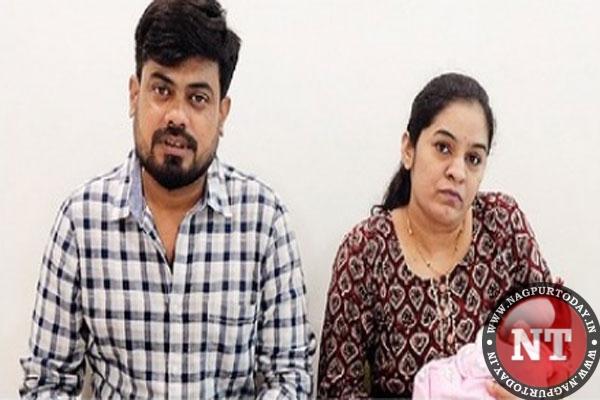
Nagpur: A preterm baby faced a significant medical challenge after being diagnosed with apnea (a condition in which the body forgets to breathe) and suffering from a rare disease caused by cytomegalovirus (CMV) infection. After undergoing 90 days of intensive treatment in the Neonatal Intensive Care Unit (NICU), the baby made a complete recovery.
The baby was delivered at 7-month of pregnancy due to sudden onset labour pain at Kims-Kingsway Hospitals in Nagpur. It was immediately shifted to the Neonatal Intensive Care Unit (NICU). The case highlighted the importance of considering rare infections and the perseverance of medical professionals in delivering successful outcomes.
Initial investigations indicated the presence of an infection in the baby, prompting the administration of antibiotics. However, despite treatment, episodes of apnea persisted, leading to the baby requiring ventilator support. Medical experts conducted multiple tests to identify the causative organism but were unable to pinpoint the root cause of the disease.
As the baby’s condition continued to deteriorate, with a decline in blood pressure, a urine sample was finally sent for CMV PCR testing. The results confirmed a strong positive result for CMV infection. Subsequently, the doctors decided to administer ganciclovir injections to the baby, a crucial step in combatting the infection.
Unique Nature of the Case: Instances of CMV infection causing life-threatening complications in preterm babies are rarely reported in medical literature. In this particular case, the absence of positive bacterial and fungal blood cultures led the medical team to consider the possibility of rare organisms causing the severe infection. The diagnosis of CMV infection opened up a new avenue for targeted treatment.
Successful Treatment and Recovery: Under the care of Dr. Swapnil Bhisikar, a neonatologist, the baby responded positively to ganciclovir treatment. After seven days, the baby was successfully weaned off ventilator support. The treatment involved a 14-day course of injections followed by an oral formulation over the subsequent four weeks. Despite facing numerous challenges during the 90-day NICU stay, including lung infections, transfusion-related lung injury, and other complications, the baby made remarkable progress.
The case of the preterm baby suffering from a rare CMV infection highlights the importance of considering uncommon pathogens when conventional diagnostic tests yield negative results. The diligent efforts of the medical team, led by Dr. Swapnil Bhisikar, resulted in the successful treatment and recovery of the baby after a prolonged stay in the NICU. This case serves as a testament to the resilience and expertise of medical professionals in providing optimal care for the most vulnerable patients.
Preterm babies in NICU can be either congenitally infected or they can suffer infection after birth.
“Diagnosis of congenital CMV disease is mostly done on the basis of clinical finding of early onset growth retardation in fetus, cerebral calcification, hepatitis, and jaundice, but these are just a few symptoms, a tip of the iceberg. Majority of the infected infants may show hearing defects and developmental delay at a later stage. So, screening the infants for CMV infection within 48 hours of birth, as is the practice in the western world should be done here. It helps in deciding treatment and prevention of a lot of morbidities,” Dr Bhisikar added.
Secondly, acquired CMV in preterm babies could be prevented by giving leucodepleted blood or giving pasteurized and frozen milk to babies after thawing (autologous milk from the milk bank).

























